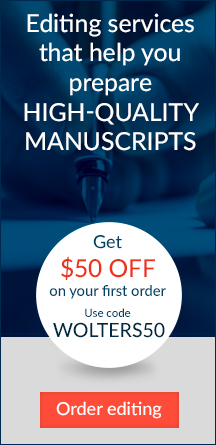Scientific Writing Toolkit Prepares Authors to Write and Publish Their Research
Mar 2017Public health policy and practice should be informed by the best research if the goal of optimal health for all is to be achieved. While the work of academic scientists comprises an important portion of the scientific literature, it is imperative that the work of those in the practice community contributes to that literature if effective policies and practices are to be identified and implemented. Unfortunately, for applied epidemiologists working in the field who want to publish their results, the time commitment required is substantial. Beyond their already demanding responsibilities of gathering and disseminating findings by other means, writing a scientific article and shepherding it through the peer-review process may consume time that they cannot afford to lose. What’s more, the process itself can be daunting, particularly to inexperienced authors who lack familiarity in assembling a writing team, writing for publication, or submitting their work for publication—it’s enough to dissuade even veteran authors. And veteran authors themselves may have their own challenges when it comes to using online submission management tools.
To gain a clearer understanding of the barriers to scientific writing and to assess the needs of applied epidemiologists, the Council of State and Territorial Epidemiologists (CSTE) evaluated current practices and developed recommendations designed to improve scientific writing skills, the findings of which were published in Applied Epidemiology Scientific Writing Trends, Needs, and Recommendations, 2014. The CSTE assessment identified three broad categories of tools and resources most requested by researchers: time, training, and support. While time and support require change at the organization level, training (with associated resources) was identified as a target of opportunity that could be addressed. Therefore, the CSTE put out a request for applications to receive funding for the development of a toolkit to serve as a resource for applied epidemiologists. Cerus Consulting, LLC, was awarded the contract in fall of 2015, and a team comprised of members of the Journal of Public Health Management & Practice (JPHMP) editorial team (Associate Editor Justin Moore and Editor-in-Chief Lloyd Novick) and Cerus staff (Theresa Oniffrey) began a process of collecting data and information via environmental scans, key informant interviews, and literature reviews to inform the toolkit.
Scientific Writing Toolkit for Applied Epidemiologists
The culmination of the efforts was the development of the Scientific Writing Toolkit for Applied Epidemiologists, a comprehensive resource designed to address the needs of time, training, and support, in large part, by simplifying and streamlining the process. The toolkit covers the entire writing process, from identifying ethical concerns prior to initiation of the writing process to responding to reviewers during the manuscript revision process. In five detailed chapters, the Scientific Writing Toolkit explains how to 1) break down the steps in the scientific writing process; 2) locate resources for planning, writing, and disseminating scientific articles; and 3) build and nurture a culture of writing and publishing in state or local health departments. One technique the authors share is a method that breaks down writing into its component stages by teaching authors how to “write in boxes” based on the introduction, methods, results, and discussion (IMRAD) principle of scientific writing.
In “Planning for Scientific Writing,” authors are given an overview of the types of scientific writing; a thorough explanation of human subject protections; a deeper understanding of appropriate scientific conduct; best practices for data procurement; and advice on composing the writing team, determining authorship, and selecting a target journal. “The Process of Scientific Writing” includes a step-by-step guide to writing and information about scientific writing resources. “Submitting the Manuscript to a Scientific Journal” explains the process of contacting an editor, writing a cover letter, submitting a manuscript to a journal, and responding to reviewers. There’s also a detailed section on technical editing and information on how to become a reviewer. “The Culture of Writing/Publishing” explains the importance of building a culture of scientific writing and publishing in health departments, provides mechanisms to encourage and recognize when staff members publish their work in journals, and offers advice on how to provide employees with access to literature. Finally, “Gaps in Existing Writing Resources” offers an overview of gaps in available resources as well as recommendations and links to tutorials, trainings, reference materials, and other resources helpful to authors.
CSTE Webinar
In addition to the CSTE Scientific Writing Toolkit, Jessica Arrazola, MPH, CHES, Acting Director of Workforce Development at CSTE, has developed a webinar featuring Moore and Novick that walks authors through the information outlined in the toolkit. The webinar is a great way to get an introduction to the toolkit and the information it contains.
E-Learning Module
With assistance from the de Beaumont Foundation, the editors are developing an online learning module that will enable authors to actually create an article from scratch by following user-friendly cues that walk writers through the IMRAD process detailed in the “write in boxes” method by filling in information one writing “box” at a time.
The CSTE Scientific Writing Toolkit, accompanying webinar, and hands-on learning module (coming soon to JPHMPDirect.com) are designed for epidemiologists, public health scientists, and other public health professionals seeking to become better writers of scientific literature. All three resources are available free of charge at the links provided.
 Back to Author Resource Review
Back to Author Resource Review